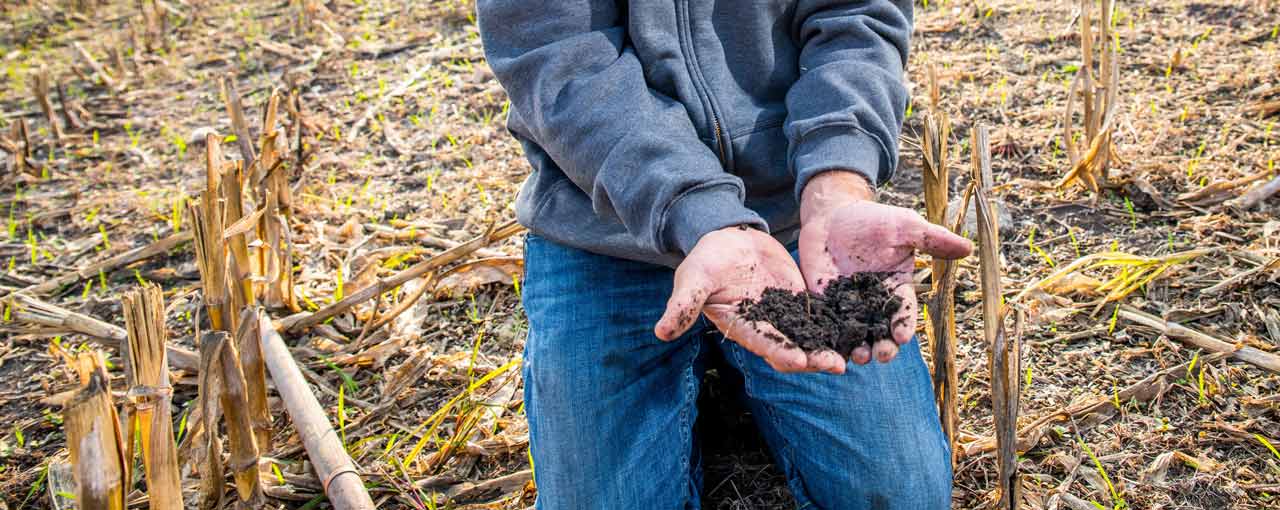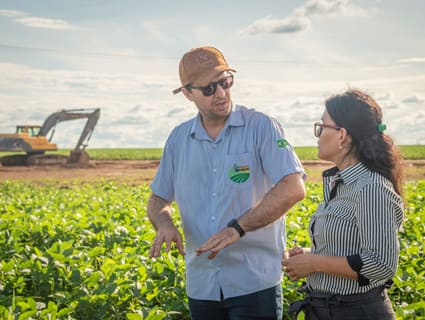Land
Cargill takes a holistic approach to sustainable land use to create lasting and impactful change for the people and places that grow our world’s food.
A holistic approach means that we must respond to the macro challenges of food security, climate change, resource depletion, and biodiversity loss while also addressing the needs of individual farmers and the natural ecosystems that are home to farming communities.
We focus our efforts on helping farmers transition to more sustainable farming practices because improving their productivity and resiliency is key to scalable impact across our supply chains. We also serve as a farmer advocate and connector to our customers, industry groups, NGOs, and governments, and as a collaborator as we work to advance sustainable land use. As such, Cargill is committed to eliminating deforestation and conversion for row crops in Brazil, Argentina and Uruguay by 2025 and deforestation globally by 2030.
Learn More
Regenerative Agriculture
Cargill is working with partners, customers and other stakeholders across the supply chain to implement soil health practices and advance regenerative agriculture to the benefit of farmers, ranchers, customers and to create a more resilient, sustainable food system.
Protecting Forests
Cargill is committed to protecting forests and ensuring deforestation-free supply chains.
Land Use and Forest Sustainability Advisory Panel
Learn how we are collaborating to accelerate progress toward ending deforestation and improving sustainability across all our supply chains.
Together on This Earth
Go on an interactive exploration of Cargill's approach to sustainable land use. This site reflects our desire to give voice to the complexity of the issue of sustainably feeding a growing population.
News Highlights
Can forests and farming co-exist? Yes, Cargill says in commitment to increase sustainable agriculture and protect forests in Brazil.
Through innovative programs, Cargill supports Brazilian farmers like Joel in protecting native vegetation — today and for generations to come.


